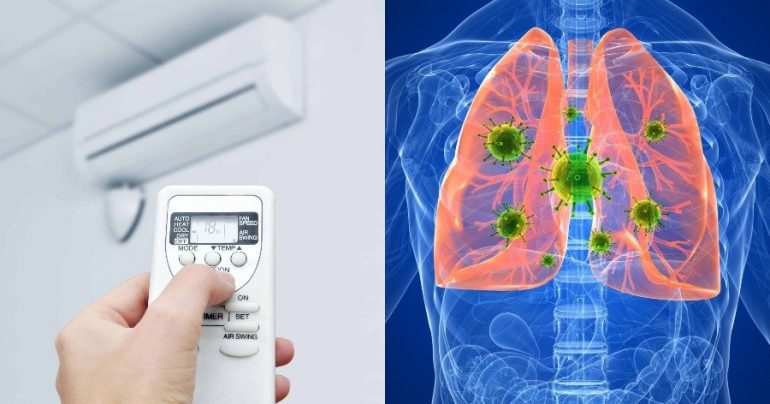Air conditioners: Many people believe that the use of air conditioners helps to heat their home, as well as themselves. This solution can be considered effective. However, there are dangers that the average citizen is certainly not aware of. In more detail:
Air conditioners: The health problems they create
- Pharyngitis (persistent lasting 2 weeks)
- Rhinitis, due to dryness of the mucous membranes from the air recycled with the air conditioner
- The headache
- The cooling of muscles
- The worsening of arthritis or neuritis
- Dry skin and the appearance of skin diseases
- The appearance of allergies from fungi and dust from the filters of the air conditioner
- The dry eye
- Conjunctivitis

Air conditioners: What to do to avoid health effects
- Proper maintenance of air conditioners
- Clean filters at regular intervals
- Setting at 25-27 degrees Celsius (ideal temperature conditions 25-26 degrees Celsius and 65% humidity)
- Frequent ventilation of the space (eg slightly open window constantly)
- No abrupt alternations cold - hot and vice versa
Air conditioners: Legionnaires' disease
Legionnaires' disease is a serious form of pneumonia. An extensive inflammation of the lungs usually caused by infection with a bacterium known as legionella. Legionnaires' disease from person to person through contact is not a contagious disease. Instead, most people catch the disease by inhaling the bacteria. Older adults, smokers and people with weakened immune systems are particularly susceptible to legionnaires' disease.
The legionnaires' disease bacterium also causes Pontiac fever, a milder flu-like illness. Separately or together, the two diseases are simply referred to as "legionnaires' disease". Pontiac fever usually goes away on its own, but if left untreated, legionnaires' disease can be fatal. Although early treatment with antibiotics usually cures the disease, some people continue to have problems after treatment.
The symptoms:
Legionnaires' disease usually develops 2 to 10 days after exposure to the legionella bacterium. It usually starts with the following symptoms:
- Headache
- Muscle pain
- Chills
- Fever that can reach 40 ° C and above
By the second or third day, the patient will develop other symptoms that may include:
- Cough, which can have both mucus and, sometimes, blood
- Shortness of breath
- Chest pain
Gastrointestinal symptoms such as nausea, vomiting and diarrhea
- Confusion, or other mental changes
Although legionnaires' disease of the air conditioners mainly affects the lungs, it can occasionally cause infections in wounds and other parts of the body, including the heart. A mild form of legionnaires' disease, known as Pontiac fever, can cause symptoms such as fever, chills, headache and muscle aches. However, Pontiac fever does not infect your lungs and the symptoms usually go away within two to five days.
via
